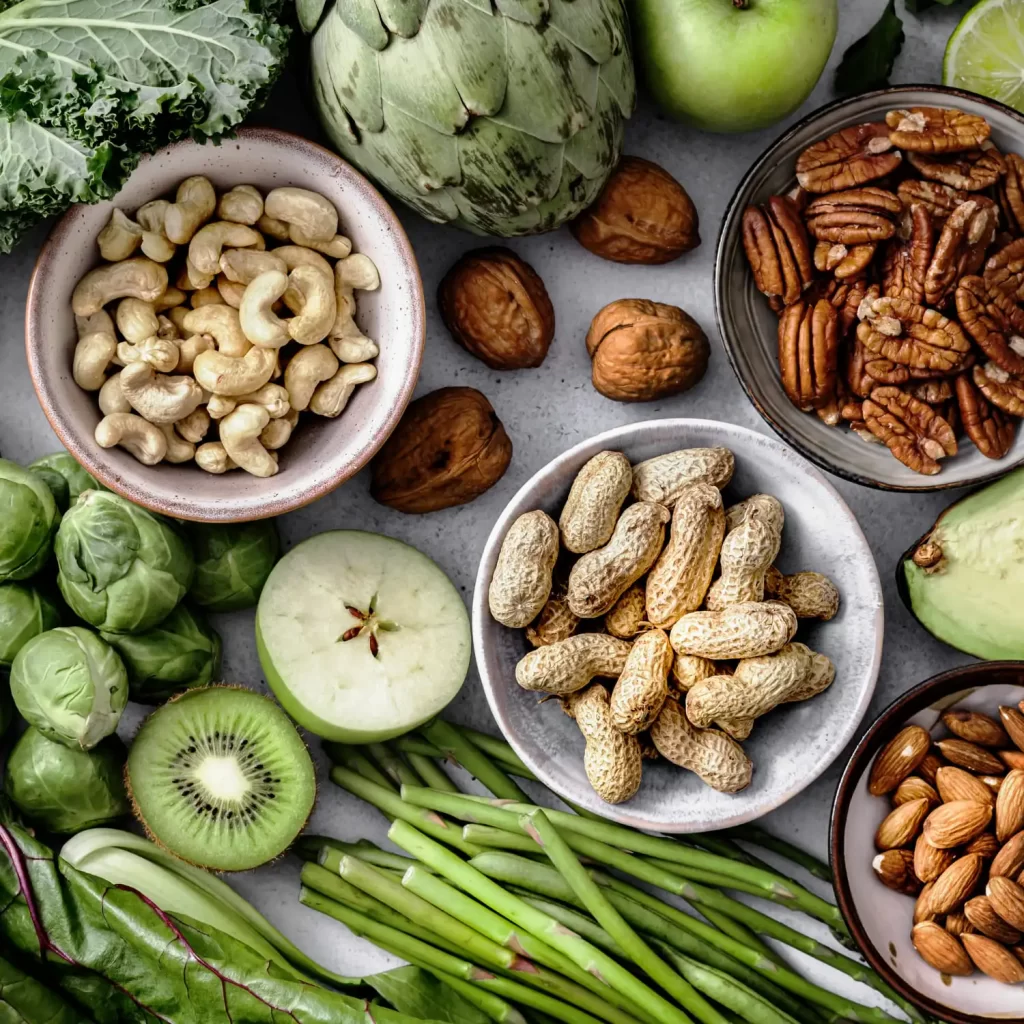In daily life, we often focus on various macronutrients such as carbohydrates, proteins, and fats. However, micronutrients such as vitamins and minerals also play crucial roles.
One often overlooked vitamin, yet vital for our bodies, is vitamin E. It not only functions as a potent antioxidant but also supports various other vital functions in the body.
This article explores the need, benefits, food sources, and impacts of both excess and deficiency of vitamin E.
What is Vitamin E?
Vitamin E is a fat-soluble vitamin that exists in several forms, with alpha-tocopherol being the only form utilized by the human body. Known for its antioxidant properties, vitamin E helps protect body cells from damage caused by free radicals. Additionally, vitamin E plays a crucial role in immune function and skin health.
Recommended Intake of Vitamin E
Based on the Recommended Dietary Allowance (RDA) 2019, the vitamin E requirement varies by age and gender. Here are the details:
Infants/Children
a. 0-5 months: 4 mcg
b. 6-11 months: 5 mcg
c. 1-3 years: 6 mcg
d. 4-6 years: 7 mcg
e. 7-9 years: 8 mcg
f. Males 10-12 years: 11 mcg
g. Males 13-64 years: 15 mcg
h. Females 10-64 years: 15 mcg
i. Elderly (>64 years): 20 mcg
j. Nursing mothers: +4 mcg (total requirement approximately 19 mcg)
Benefits of Vitamin E
Vitamin E offers numerous essential health benefits:
1. Antioxidant Properties
Vitamin E protects cells from damage caused by free radicals. Free radicals are unstable molecules that can harm body cells and contribute to aging and diseases. By protecting body cells, vitamin E can help reduce the risk of chronic diseases such as cancer and heart disease.
2. Skin Health
Vitamin E helps repair skin damage caused by UV exposure and other environmental factors. Additionally, it can reduce signs of aging, such as wrinkles and fine lines, by maintaining skin elasticity and moisture.
3. Immune Function
Vitamin E plays a role in supporting immune function, helping to protect the body from infections and diseases. By strengthening immune cells, vitamin E assists in enhancing the body’s ability to combat pathogens and maintain overall health.
Sources of Vitamin E
Vitamin E is found in various foods, particularly plant-based sources. Good sources include vegetable oils like sunflower oil and olive oil, green leafy vegetables such as spinach and broccoli, and fruits like kiwi and mango. Nuts such as cashews are also high in vitamin E.
Effect of Excess in Vitamin E
Although vitamin E is important for health, consuming it in excess can lead to side effects. Excessive vitamin E intake, especially in supplement form, can cause excessive bleeding by disrupting normal blood clotting function.
Other symptoms of vitamin E excess include digestive disturbances, weakness, fatigue, and emotional instability. Therefore, it is important to consume vitamin E according to the recommended daily requirements.
Effect of Deficiency in Vitamin E
Vitamin E deficiency is rare but can cause various health problems. Early symptoms of vitamin E deficiency include muscle weakness, vision disturbances, and balance and coordination issues. In more severe cases, vitamin E deficiency can lead to nerve damage and other neurological problems. Vitamin E deficiency can also weaken the immune system, making a person more vulnerable to infections.
If it occurs, healthcare professionals should check the patient for possible deficiencies in other minerals. The goal is to address the underlying causes of the deficiency (such as fat malabsorption, lipid metabolism disorders, and others), and then provide oral vitamin E supplements.
Cashew Milk as a Source of Vitamin E
Cashew milk is a plant-based alternative rich in vitamin E. Delicious and creamy, it offers numerous health benefits, providing a significant amount of this essential nutrient.
Recommendation – Arummi Cashew Milk to Meet Your Vitamin E Needs
Arummi Cashew Milk is an excellent choice to meet your daily vitamin E needs. With just one serving (170 mL), you can fulfill up to 45% of your daily vitamin E requirement.
Get yours at the nearest supermarket now!









































